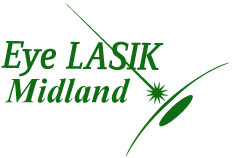As medical research advances, we as consumers have the benefit of knowing how to best take care of our bodies. Whether it’s understanding what type of exercise we should do to achieve a healthier body, or what types of foods benefit our health, living in the information age has many advantages. One thing we continue to struggle with is changes to our bodies that are simply genetic. For instance, there’s nothing we can do at this time to prevent our eyes from developing nearsightedness, farsightedness, or astigmatism. It’s simply part of our genetic code and the changes to our eyes are bound to happen. The good news is, technical advances in refractive eye surgery have made it possible to correct these conditions.
LASIK vs. Epi-LASEK Eye Surgery
Many people are familiar with the concept of LASIK eye surgery, which corrects the surface of the cornea by creating a small surgical flap of tissue, which when reshaped and closed creates the vision correction. LASIK is the right type of surgery for many people. However, some other people may have better results with a different type of refractive eye surgery called Epi-LASEK. The difference is subtle, but may be appropriate for certain individuals.
Are you a candidate for Epi-LASEK Eye Surgery?
In Epi-LASEK eye surgery, only the epithelial or surface cells of the cornea are used to create the new corneal surface. Following the surgical change, a highly oxygen-permeable contact lens is inserted, which allows the proper regrowth of the epithelial surface. Generally by the third day post-op, the contact lens is removed by the doctor. This type of surgery may be necessary for individuals with thinner corneas, who would not be good candidates for traditional LASIK surgery. This may also be the right type of surgery for people who have professions or hobbies where there is a higher chance of being hit in the eye, because with LASIK surgery a larger corneal flap is created and could be dislodged by trauma to the eye.
Two advantages of LASIK versus Epi-LASEK are these: less post-operative pain and discomfort, and possibly a quicker return to normal vision. This is not to say that Epi-LASEK eye surgery is extremely uncomfortable, in fact, most people only need over-the-counter pain medication. Some patients who have Epi-LASEK surgery may also take longer to achieve full vision correction. Although Epi-LASEK patients may experience a slower recovery time than LASIK patients, the fact remains that the surgery is very safe and effective and may be right for certain individuals. You will never be left to make this decision on your own. After your eye shape and vision correction needs are determined, our doctors will consult with you on which surgery would give you the best results. Our patients can have complete confidence that Eye Lasik Midland will provide the optimal surgical approach with full vision correction as our goal.
